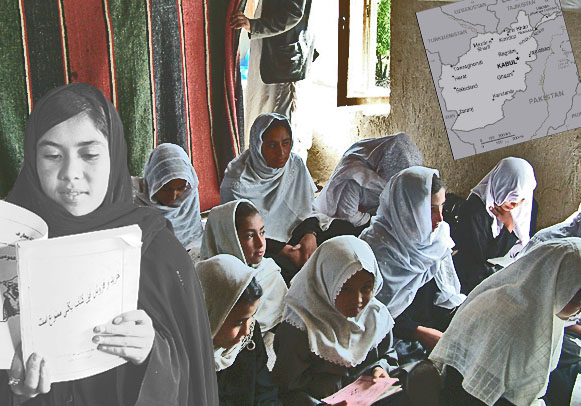Just imagine not being able to read. Even more shocking, imagine being denied the opportunity to learn how.
An eight year old girl, Arzo admitted, “My father does not know that I am here.” “It’s my mother who has begged the teacher to take me in.”
Mariam, is a fourteen year old tenth grade student who teaches at one of these informal schools and hopes to become a professor one day. She teaches math and how to read and write in the local language, Dari.
“A typical day in my life starts at 3 a.m.,” she says. “I do my ablutions and pray. From 5 a.m., I clean the house and help my mother with breakfast. Then I am walking to school, which takes about 30 minutes. Our literacy class starts at 2 p.m. at the house next door. Before the lesson starts, I check the homework of my students.”
For Farida Dastgeer, a 65-year-old student, she is just learning how to read since her father never allowed her. “My whole life, I felt excluded from what’s going on,” she says. “This is about to change now. Next year, I will be able to read the announcements in the newspaper and the price tags in shops.”
UNICEF, the United Nations Children’s Fund is an agency, created by the United Nations General Assembly that focuses on improving the health and nutrition of children and mothers throughout the world. Since 2008, UNICEF has supported informal literacy centers throughout the country.
I cannot even fathom not being able to read yet alone not being allowed to. Literacy is vital to promoting females in Afghanistan and securing a future.
